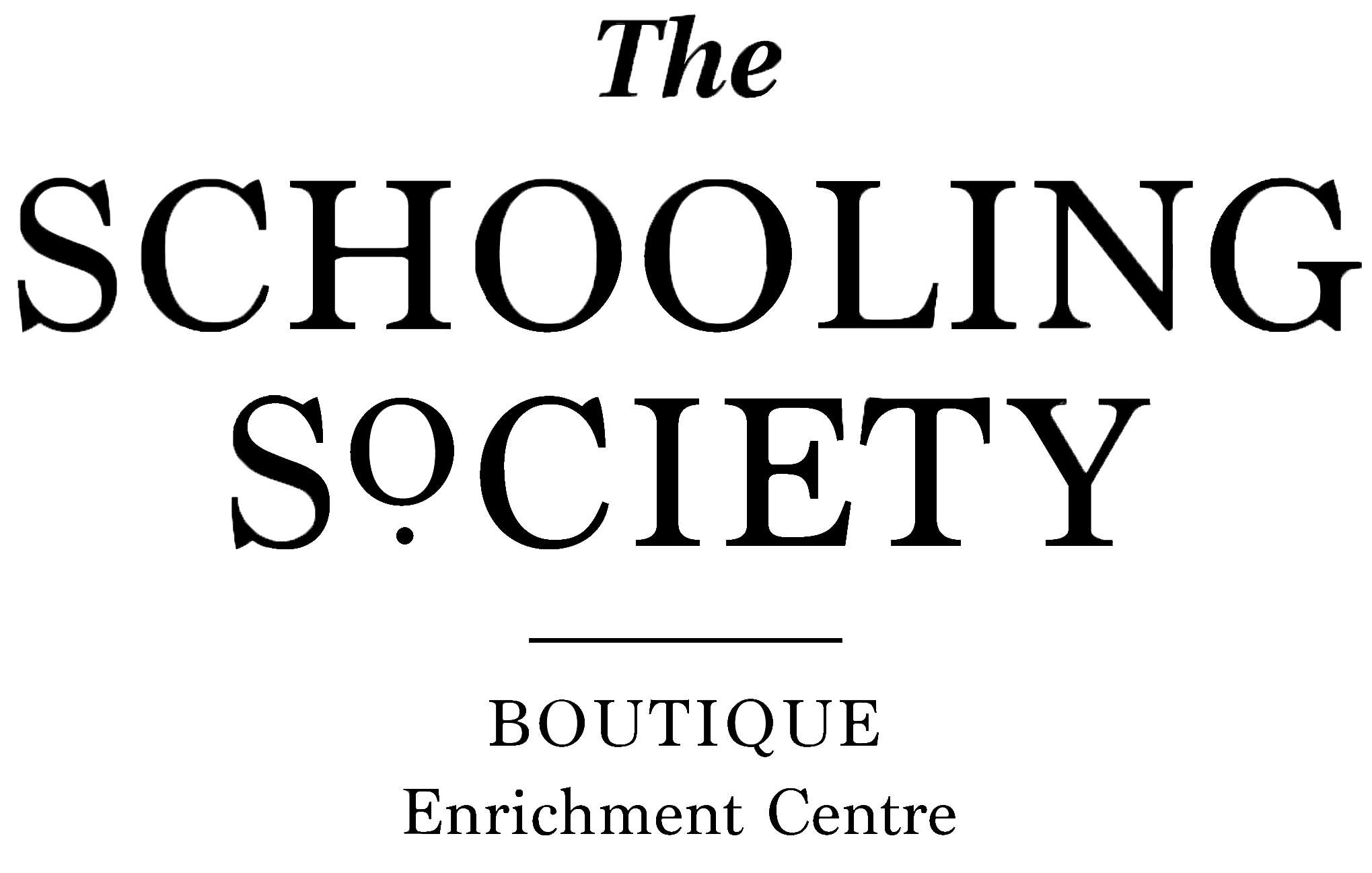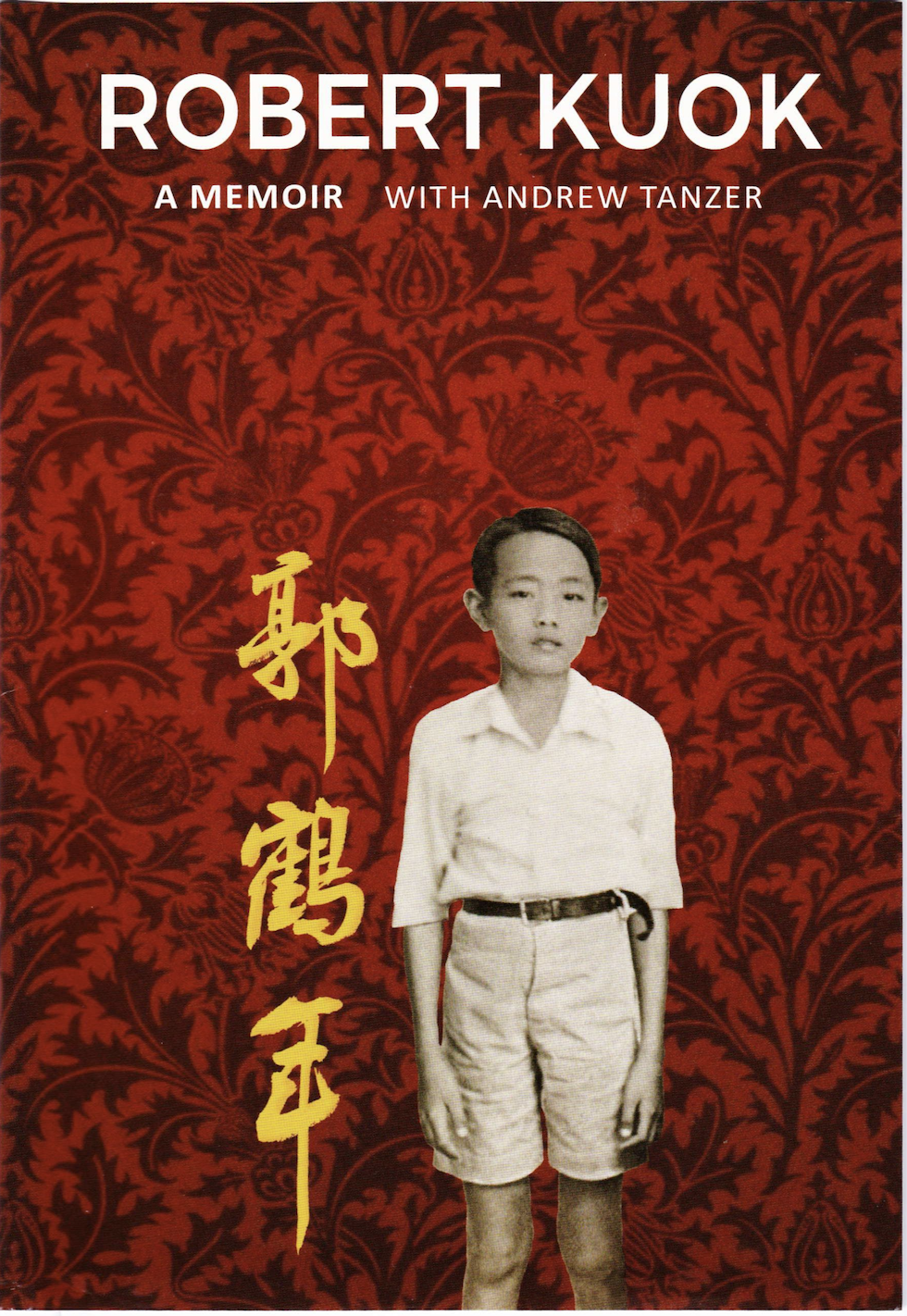Robert Kuok, a Memoir is the autobiography of one of Asia’s most prominent and respected Chinese businessmen. At 94 years old, the life story of this private tycoon is finally unveiled. Famously known as Malaysia’s Sugar King, Mr Kuok built an empire which includes the famous Shangri-la group of hotels, oil palm plantations, properties as well as a shipping conglomerate. Estimated to be worth US$13.9 billion, Mr Kuok’s autobiography is one of the most fascinating books published this year.
While Mr Kuok’s business acumen and entrepreneurial skills are legendary, what stood out for me is his wisdom. His sincerity is palpable. He is a man with a generous spirit. He is sincere and keen to share the lessons learnt from his life experiences. In this touching memoir, he manages to do it in a humble, simple and honest manner. This book reveals that Mr Kuok not only connects with powerful and influential leaders but that he has the innate ability to connect with the ordinary person who reads his book.
Throughout his memoir, there are a few threads that surface over and over again. These threads, described below, all have one thing in common. They all reflect the thoughts of a man who is fundamentally a good, kind and fair person. Or at least, the writer is a person who tries to be the best version of himself. Mr Kuok’s story is inspirational because it’s a story about a good guy who, through sheer hard work and wisdom, climbed all the way to the top.
1. The Importance of Values
(i) The influence of his mother: Confucian values
Mr Kuok’s mother was the most influential person in his life. Having attended good schools in Fuzhou, she was influenced by the teachings of Confucius and Mencius. In Chinese, these teachings are known as rujiao or “儒教”. In simple terms, Rujiao teaches a person the correct behavior for life on earth.
Weathering war and other difficult circumstances, she taught her sons to be grateful, humble and loyal. She did this by example and by being consistent in her actions and words. She constantly urged them not to be greedy. When Mr Kuok asked her why she was always reminding him this, she tells him, “I have detected in you a tendency to discard the bridge once you have crossed over it. I hope. You’ll never do that to your friends, in business or otherwise”. It is significant that she chose to see her son in an honest and open manner and then, took the steps to correct his potential flaws.
His mother also taught her sons to be thrifty with money and was very strict with them. If they misbehaved, the boys knew that she would have no qualms in canning them. In other words, they learnt that behaving badly had real consequences, even with the person who loved them dearly.
(ii) The importance of humility
In many parts of the memoir, Mr Kuok talks about the importance of staying humble, ‘Learn to be humble: Genuine humility must be inner humility, guided by compassion towards your fellow beings. I have found that if a person is truly humble, most people will do anything for him; but if he is a cocky person, out of 20 “friends”, barely two will help him.’
‘…success often breeds failure, because it makes you arrogant and incautious.’
(iii) The importance of hiring people with good values
‘When I hire staff, I look for honest, hardworking, intelligent people. When I look at candidates in the eye, they must appear very honest to me. I do not look for MBAs or exceptional students. You may hire a brilliant man, summa cum laude, first-class honours, but if his mind is not a fair one or if he has a warped attitude in life, does brilliance really matter?’
‘The important thing is unity in the Group: Teamwork, hard work and zero treachery. You don’t need to employ Einsteins and Nobel Prize winners to build up a solid enterprise.’
(iv) The importance of finding good people to build a nation
When Mr Kuok met his old friend, Hussein Onn, the son of one of the founders of an independent Malaysia, he urged Onn to pick people based on these criteria (pg 268), rather than on race:-
- Integrity – look for someone who is incorruptible, upright and honest.
- Ability – look for someone who is able and capable
- Hardworking – look for someone who is willing to work very hard for a long period of time
(iv) The importance of knowing what brings happiness
‘I would like young people to take stock of what life on earth is really about. Do not confuse material satisfaction with happiness. Money cannot do everything for you. Distinguish between the real and the fanciful. Learn to live simply and, whenever you can, share your wealth with others.’
‘Healthy values are also crucial. To achieve happiness and live a contented life, I believe that there are some important practices everyone should adopt and cultivate. Number one is to curb envy and jealousy. Number two is to curb greed.’
2. The Importance of Observation
(i) Reading people well
‘Now, in all my life, I have tried to listen carefully. When I go into a room, I’ve seen everyone before they’ve seen me. I hear every sound, including those that others may have missed. Most of the time, I’m playing a game of poker and pretending I’ve see nothing. I have always relied on my senses to guide me.’
‘I would go into a room and spot everything in a twinkling of an eye. If there were more than twenty people, then maybe it took me a few minutes to size everyone up. But if there were only six, I could immediately know what was going on. I could see tension and camaraderie.’
He also believes that this ability to size people up is a trait shared by successful Jewish and Chinese businessmen.
(ii) Spotting trends
Mr Kuok made a name for himself as a commodities trader, specializing mainly in sugar at first. He was successful because he had the ability to ‘wade through thousands of words very quickly to spot important points’ (pg 153).
3. The Importance of Learning
‘I was a young, new businessman coming up in the business world, so I had to learn everything from scratch. I didn’t have anyone to teach me. But everything I do in life, every bit of action, is part of the learning process.’
4. The Importance of People
When Mr Kuok writes about how he started Shangri-la Hotel, he noted that the top priority was to take care of the staff (pg 226). This was followed up by the guests. The shareholders of the business came last. He had a intuitive sense that if the staff were well taken care of, they would naturally take care of the guests. When this happened, the bottom line of the hotels would improve and thus, the shareholders would be rewarded.
Again in pg 344, he talks about this, “Those who work alongside me, for me or under me, mean a lot to me. I call them my working brothers or sisters, for when you start a company you and your colleagues are really like one family.”
5. The Importance of embracing other Races
At the age of 17, Mr Kuok worked for Mitsubishi’s rice department during the war. There, his superior, a Japanese man, often hit a few Malay boys. When this happened, Mr Kuok showed his displeasure. It is also striking that while he writes about the immense cruelty and brutality of Japanese soldiers during the war, he could put aside the bitterness and not let it cloud his view about individuals. In one part of his memoir, he recounts that he was very sad that Mr Nagaoka had passed away as ‘Nagaoka was more human than any of my fellow compatriots, Malay, Chinese or Indian’.
6. The Importance of being Resilient
‘The road to success is paved with challenges, and with each test or failure, a man must show resilience… Worrying never provides the solution to a problem. It weakens the mind and eventually the physique to the point where people die from frustration, from worrying about their failure.’
‘Problems must not be seen as brick walls. You can walk through a problem. Penetrate it and go to the other side; forget it and start life afresh.’
7. The Importance of Languages
While it was not brought up in an obvious way in his memoir, Mr Robert Kuok is effectively trilingual in English, Mandarin and Bahasa Melayu. This enabled him to forge close relationships with people of many races. He conversed in English with British traders and Jewish businessmen. When he spoke to Malaysian and Indonesian ministers, he was able to do so in fluent Bahasa Melayu. Then, in China, he used Mandarin to connect with China heads of state such as Deng Xioaping and Xi Jinping. His experiences reminds us that the having the ability to speak in another person’s language allows us to instantly bond with a stranger. That is the true value of being multilingual.
8. The Importance of being Human
Mr Robert Kuok stepped up on numerous occasions to help his birth country, Malaysia and his ancestral home, China. Throughout the years, both countries had seeked his help to either help revitalize industries or to forge connections. On many occasions, he stepped up to help. Often, he was motivated by his love for both nations rather than for profits. In 1972, he secretly helped China buy sugar when there was a shortage of sugar. Then in 2018, after having left Malaysia for many years, at 94 years old, he took on the role of an adviser when the new government took control of a troubled Malaysia. Mr Kuok is a person who does not forget his roots. Despite his great wealth and power, it is this sentimental and human side of a highly influential man that commands great respect.
Conclusion
This review only provides a tiny glimpse into Mr Robert Kuok’s memoir. The actual book is well worth reading.




